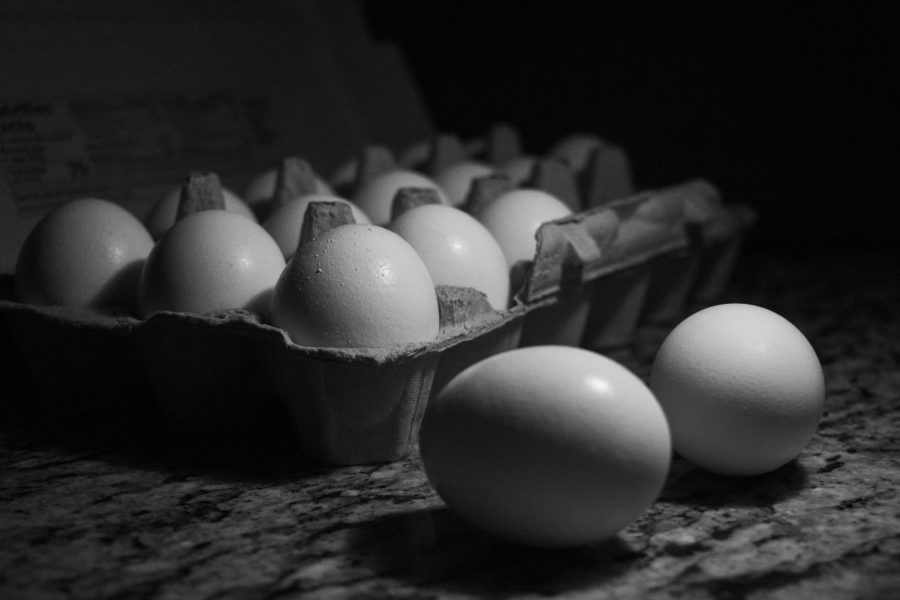France Is to Ban the Mass Murdering of all Male Chicks by 2021
FRANCE HAS HAD ENOUGH France is to ban the mass shredding of all male chicks by 2021, saving the lives of billions of chicks. Due to their inability to produce eggs and tasty meat, they are killed brutally by animal farmers.
February 26, 2020
France, along with other countries, has officially announced they will ban the mass shredding, gasing, suffocating, and electrocuting of all male chicks by 2021. More commonly known as chick culling, the murdering of these male chicks was legal before due to their inconvenience to the animal farming industry.
In 2018, it was calculated that over seven billion day old chicks were killed yearly worldwide. Freshman Isabella Mitchell says, “I’m happy that the ban is now in place, and it’s sad that originally that was even a thing they did.” Countries around the globe are still preforming this common practice. The farmers’ want for female chickens over male chickens is simply because of their ability to produce eggs and good, healthier meat. Male chickens never fully grow to the size of female chickens, making their meat less hearty and tougher. For the most part, farmers kill these chicks through high speed grinders, gas them using nitrogen, suffocate, or electrocute them, all of which are either slow or painful ways to kill these chicks. Junior Kieran Mchugh states, “If they don’t gain anything from having the male chicks, then it’s kind of just an economic loss on their part, but I feel like shredding them and gassing them, as you said, there should be a more humane method.” Scientists are currently researching for a way to discover the sex of the chicks before they have hatched. This will be painless and benefit the farmer’s economy. According to an article by Vice, “Certain blood vessels can be detected within the embryo to determine what sex it will become. The whole process takes about ten seconds and can be carried out three days after the egg is laid, at which stage an embryo’s central nervous system is not yet active, thus no pain is experienced upon being destroyed.” This process is known as ovo sexing and many countries are looking for the fastest way to carry it out. The scientists’ goal is to solve the problem for both the chicks and farmers. If scientists can effectively determine the sex of the embryo before hatched, it could solve the problem of chick culling in a humane, yet ethical way. Mitchell says, “Part of me is like analytically I can understand where they are coming from, but how they did it, I think was cruel and unnecessary.”
Few countries have ruled this common practice illegal, one being France. In an article written by CNN, Amy Woodyatt states that other countries like Germany say the “slaughtering of male chicks should continue until methods are developed to determine the sex of an embryo in the egg.” They are open to other solutions but will continue to slaughter the chicks until that solution is found and proven. The countries’ personal need for the economic benefit behind slaughtering the male chicks will keep them from acting on this urgent matter right away. Chick culling is a common practice in food production and banning this will take time. Trying to convince countries to stop a practice that has been saving them money for years will be challenging, but many animal activists are up to the challenge.
Animal activists believe this practice is inhumane and ruthless and some even say that France did not go far enough. Activists believe this problem is bigger than the chicks too, as many livestock including cows and pigs are also put in substandard living conditions. The Guardian says that “France prides itself on its meat and poultry industries, but there have been growing tensions in recent years between producers and activists calling for radical changes in farming methods.” Animal activists believe that although it was a step in the right direction, there needs to be more focus on the more basic problems. They need to address issues like slaughter conditions for larger livestock. Senior Avinash Koya compares the slaughtering of the male chicks and other livestock and says, “I don’t think it’s really that different, to be honest, because it’s still an animal and it has its own thoughts.”
Recent research has shown that farmers can suffer from sociological effects due to the constant slaughtering of their own livestock. Sophomore Clare Marshall believes this can be true due to “lots of farmers having connections with their animals.” Records have shown that some farmers commit suicide because of their rigorous job. An article by USA TODAY states that “this year alone, about 800 dairy farmers in Wisconsin quit or were forced out of the business, a rate of more than two per day.” Farmers, whether they are food or animal farmers, have connections with their farms and will do anything to keep their land. If farmers can gain or even save money killing the male chicks, most will do it, not wanting to lose their farms.
Frances future ban is a step in the right direction. Other countries may follow, pleasing animal activists, and others who think chick culling is brutal and inhumane, but farmers may not be willing to stop their common practices.




